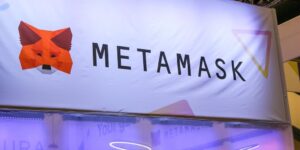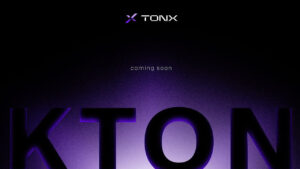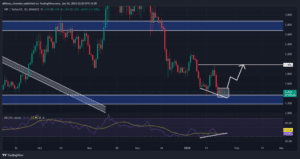Michigan State Pension Fund allocates $10 million to Ethereum Trust Holdings

TLDR
Michigan State Pension Fund invests $10 million in Grayscale's Ethereum Trust (ETHE), now holding more ETH than BTC investment, including an additional $1.1M in Ethereum Mini Trust, making it the first US state pension fund in ETH ETFs The fund previously held ARK 21Shares $6.6M invested. Bitcoin ETFs saw $2.2B weekly inflows of digital asset investment products in July, bringing the year-to-date total to $29.2B ETHE faces competition from low-fee ETFs at BlackRock and Fidelity.
The Michigan State Retirement System has invested $10 million in Greyscale's Ethereum Trust (ETHE) in the cryptocurrency space.
The investment marks a major shift in the fund's digital asset strategy, according to a 13-F filing with the Securities and Exchange Commission on Monday.
The $13.6 billion pension fund has expanded beyond its initial cryptocurrency investments, adding $10 million worth of Ethereum shares to its portfolio.
In addition to this massive acquisition, the fund also acquired $1.1 million worth of shares from Greyscale's Ethereum Mini Trust, becoming the first US state pension fund to divest itself into Ethereum ETFs.
This latest investment builds on the fund's earlier foray into digital assets, which began allocating $6.6 million to the ARK 21Shares Bitcoin ETF in July.
What makes this move particularly noteworthy is that the fund's Ethereum holdings now outpace Bitcoin positions despite receiving regulatory approval months ago.
The ETHE Investment Pension Fund provides indirect exposure to the performance of Ethereum through fractional ownership, eliminating the need to hold cryptocurrency directly. Each share of ETHE represents a unit of Ethereum held in trust by Grayscale on behalf of shareholders.
After converting to an ETF in July 2024, ETHE has faced challenges in the market. The fund lost $484 million on its first day of trading and experienced high costs. As of early August, data from Soso Value indicated that total spending exceeded $2 billion.
The competitive landscape for Ethereum ETFs has intensified with the entry of major financial institutions. BlackRock and Fidelity have launched their own Ethereum ETF products, offering more attractive fee structures.
While ETHE charges 2.5%, BlackRock's ETHA and Fidelity's FETH plan to charge 0.12% and 0.25%, respectively, after their settlement periods expire on December 31.
In the broader digital asset market, investment products have seen impressive growth. The latest data shows weekly revenue of $2.2 billion, bringing the year-to-date total to $29.2 billion.
This increase has pushed the total assets under management in digital assets to over $100 billion, a level that was seen as early as June 2024.
Bitcoin remains the dominant force in digital asset investments, accounting for $2.2 billion in weekly revenues. In contrast, Ethereum saw a more modest gain of $9.5 million, indicating measured investor interest in the second largest cryptocurrency.
The United States leads regional investment flows, contributing to a total of 2.2 billion dollars. Market analysts say that domestic political developments have influenced investment patterns, with some changes occurring during elections.
Alternative cryptocurrencies have attracted institutional interest. Solana raised $5.7 million, while other platforms such as Polkadot and Arbitrum saw smaller investments.
The Michigan pension fund's move to Ethereum comes as traditional financial institutions increasingly embrace digital assets. This trend accelerated following the SEC's approval of spot Bitcoin ETFs in January 2024.
Meanwhile, across the Atlantic, similar developments are occurring. Cartwright, a British pension consultancy, recently advised an anonymous client to allocate 3% of bitcoins, citing the cryptocurrency's nearly 100,000% performance since 2013.
The State of Michigan Retirement System's investment strategy reflects the growing institutional acceptance of digital assets. The fund's decision suggests a nuanced approach to kriptovalyutnogo investment, recognizing the potential of various blockchain platforms to allocate capital over Ethereum.
Recent market data shows continued demand for digital asset investment products. A total of $100 billion in assets under management represents a key milestone for the industry, matching previous highs by June 2024.
Competition among ETF providers continues to evolve, with fee structures emerging as a key differentiator. The difference between ETHE's 2.5% fee and the lower rates offered by newcomers such as BlackRock and Fidelity could influence future institutional investment decisions.














